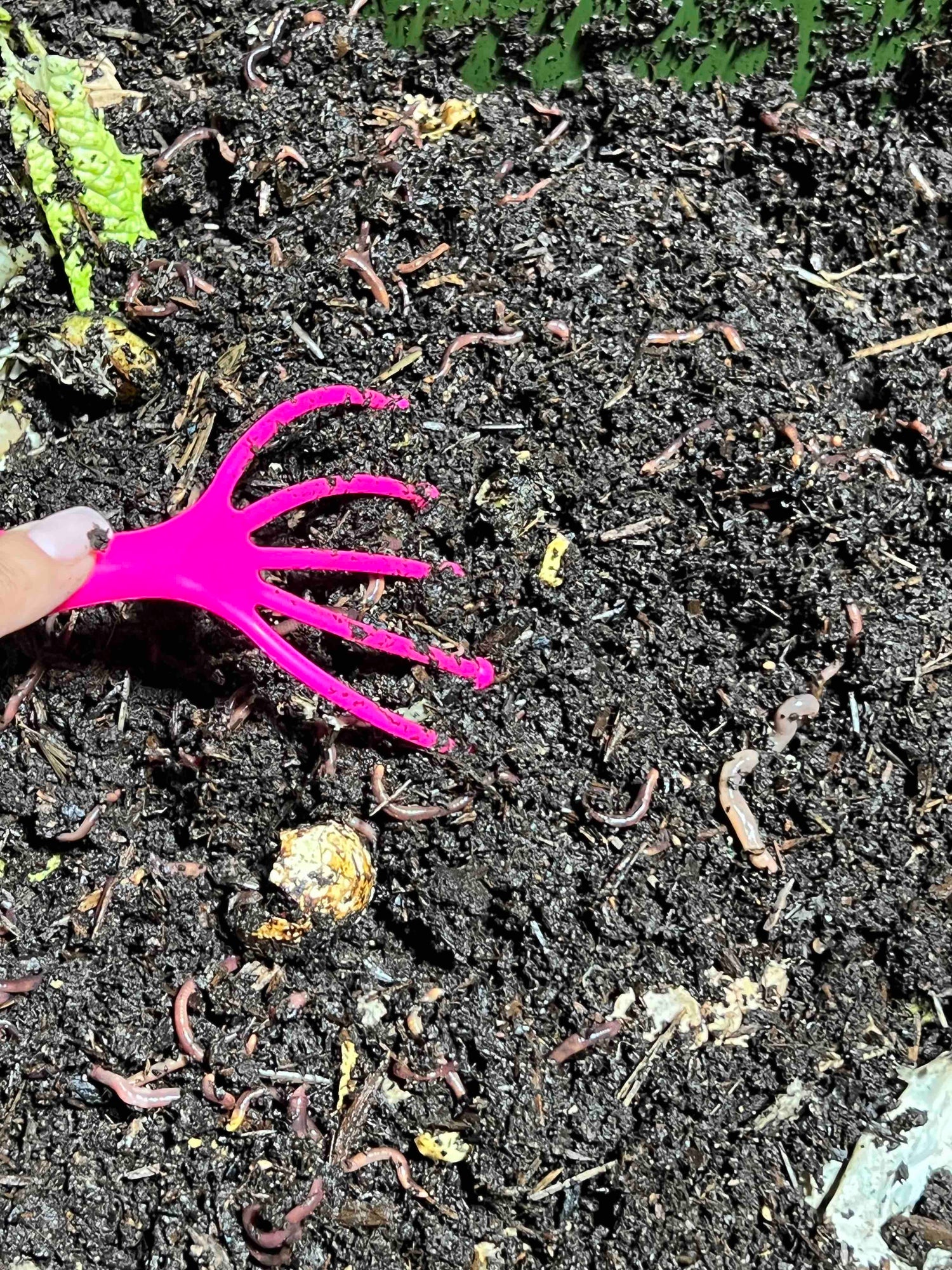Worm composting, also called vermicomposting, is one of my favorite ways to turn kitchen scraps into rich, living compost. I use it every day on my worm farm, and I help beginners set up bins all the time. Most people are surprised by how simple it is.
But there’s one thing that scares new worm composters more than anything else: worm bin odor.
If you’ve ever opened your bin and smelled something sour, rotten, or just plain bad, you’re not alone. A healthy worm bin should smell earthy, like fresh soil. If it doesn’t, something is off—but the good news is that it’s fixable.
In this guide, I’ll explain why worm composting bin odors happen, how to prevent them, and exactly what to do if your vermicomposting odor gets out of control.
Why Does My Worm Composting Bin Smell?
A bad smell is your worm bin’s way of telling you something is wrong. Worms themselves do not smell. The odor comes from food rotting the wrong way or from poor conditions inside the bin.
Here are the most common causes of worm bin odor.
Overfeeding
This is the number one mistake I see.
Worms can only eat so much food at a time. When extra scraps sit uneaten, they begin to rot instead of breaking down properly. That rotting food creates strong smells and attracts bad bacteria.
If your bin smells, chances are you are feeding more than your worms can handle.
Anaerobic Conditions
Worms need oxygen. When a bin gets too wet, compacted, or dense, air cannot move through it. This creates anaerobic conditions, which allow smelly bacteria to take over.
Anaerobic bins often smell like rotten eggs or sewage. That smell is a big warning sign.
Wrong Foods
Some foods should never go into a worm bin. Meat, dairy, oily foods, and large amounts of citrus break down slowly and cause strong odors.
These foods also attract pests and can throw off the balance of your bin.
Poor Bedding
Bedding is just as important as food. It absorbs moisture, keeps air flowing, and gives worms a place to live.
Without enough bedding, your bin can become wet and compacted, leading to vermicomposting smell odor problems. Materials like shredded cardboard, paper, or coco coir help prevent this.
Improper pH Levels
Worms like a neutral environment. If your bin becomes too acidic or too alkaline, worms slow down or try to escape. Meanwhile, odor-causing microbes thrive.
A sour or vinegary smell often means the bin is too acidic.
Must Read : New to Worm Composting? Avoid These 5 Beginner Mistakes
How to Prevent Odors in Your Worm Composting Bin
The best way to handle worm composting bin odors is to stop them before they start. These simple habits keep bins clean, balanced, and nearly odor-free.
1. Proper Feeding
I always tell beginners to feed less than they think they should.
Add small amounts of food and wait until most of it is gone before adding more. Chop or blend scraps so worms can eat them faster.
Balance green materials (food scraps) with brown materials (bedding). Browns help keep air flowing and absorb moisture.
2. Adequate Bedding
Your bin should always be at least half bedding.
Use shredded cardboard, newspaper, paper bags, or coco coir. Bedding should feel like a wrung-out sponge, not dripping wet.
Fluff the bedding every week or two to keep air moving. This alone can prevent most worm bin odor issues.
3. Correct Foods
Stick with safe foods like fruit scraps, vegetable peels, coffee grounds, and crushed eggshells.
Avoid meat, dairy, oily foods, and spicy leftovers. Bury food under bedding to keep smells from escaping and to discourage pests.
4. Proper pH Levels
If your bin smells sour, add crushed eggshells. They help balance acidity and add grit worms need for digestion.
Check pH if problems continue. Small adjustments make a big difference.
5. Good Ventilation
Bins need airflow.
Make sure excess liquid can drain, and that air holes are not blocked. Oxygen keeps beneficial microbes working and stops bad smells before they start.
6. Proper Bin Size
If your bin is too small for the amount of food you add, odors are almost guaranteed.
Choose a bin that matches your household waste level. Overcrowded bins struggle to stay balanced.
Dealing With Foul Odors in Your Worm Composting Bin
Even well-managed bins can have problems sometimes. If you notice a vermicomposting smell odor, don’t panic. Follow these steps.
1. Identify the Source
Open the bin and smell carefully.
A rotten smell usually means overfeeding. A sour smell often means acidity. A sewage smell points to lack of oxygen.
Look for large chunks of food or soggy bedding.
2. Adjust Feeding Habits
Stop feeding for a few days or even a week.
Let worms catch up. Remove any food that is clearly rotting or not breaking down.
3. Aerate and Fluff
Gently mix the bedding to add air.
If the bin is wet, add dry bedding on top. This helps absorb moisture and improves airflow right away.
4. Adjust pH
Add crushed eggshells if the bin smells sour.
If needed, use a small amount of garden lime designed for composting. Never overdo it.
5. Monitor and Wait
Worms are very good at fixing their environment when given the chance.
Once conditions improve, smells usually disappear within a few days.
6. Create a Rescue Bin if Needed
If the bin is badly compacted or smells unbearable, set up a new bin with fresh bedding.
Move the worms over gently and leave the problem material behind.
Must Read : Starting Your Worm Composting Adventure: A Decade of Insights
Why a Healthy Worm Bin Should Not Smell
A properly managed bin smells like forest soil.
When worms, microbes, moisture, air, and food are balanced, composting happens cleanly. Bad smells mean decomposition is happening the wrong way.
Understanding worm composting bin odors helps you become a better composter and keeps your system healthy long-term.
Final Thoughts
Worm composting is simple, rewarding, and incredibly effective when done right. Worm bin odor is not a failure—it’s feedback.
When you understand what causes worm composting bin odors and how to correct them, your bin becomes easy to manage and nearly smell-free.
Feed lightly, use plenty of bedding, keep air flowing, and trust your worms. They know what they’re doing.




Leave a comment
All comments are moderated before being published.
This site is protected by hCaptcha and the hCaptcha Privacy Policy and Terms of Service apply.